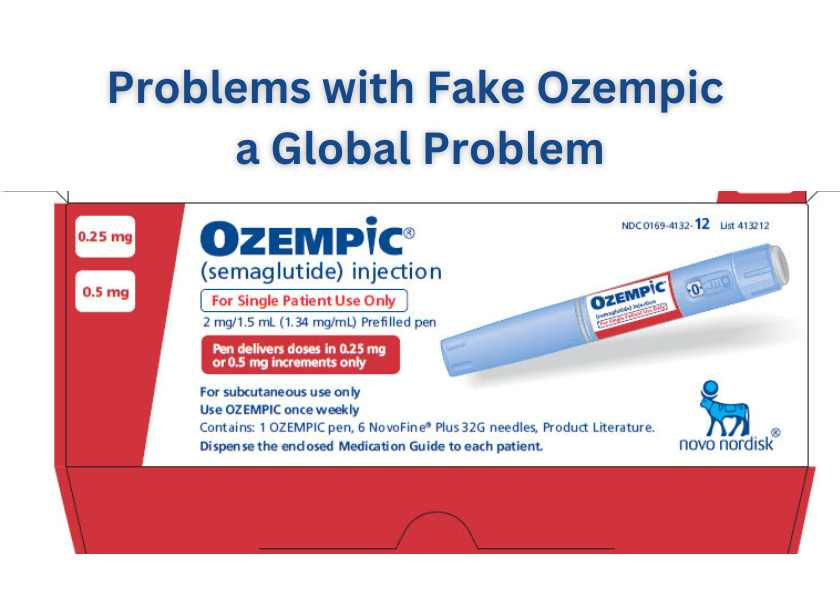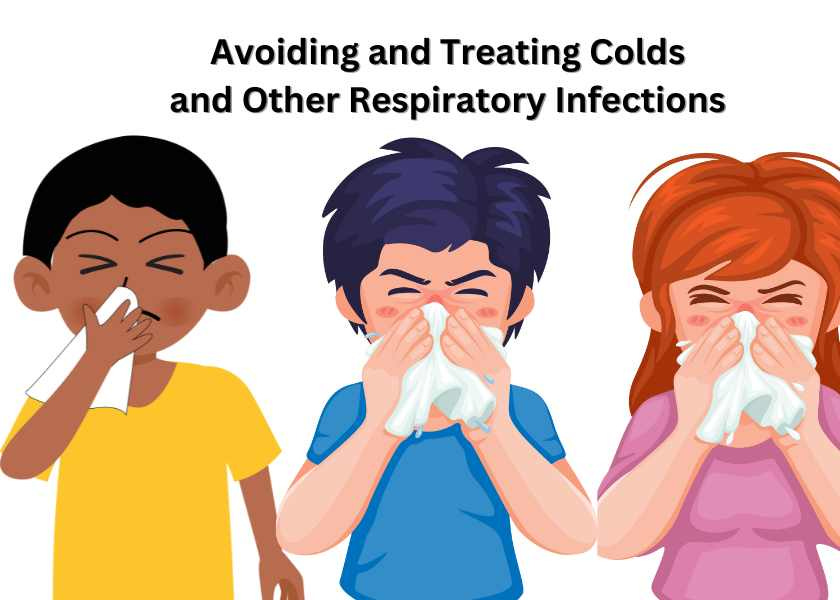September 10, 2024: FDA Approvals and rejections; counterfeit Ozempic; avoiding and treating respiratory illness; more
Drug Approval
The volume of new FDA drug approvals has been light the last couple of weeks, with only one to report: Travere Therapeutics' Filspari (sparsentan) kidney disease drug, moved from its temporary "accelerated" approval to full approval status after submitting supporting clinical trials results. Filspari is approved to treat a rare kidney disease called Primary IgA nephropathy (IgAN), also known as Berger's disease.
https://www.fiercepharma.com/pharma/trial-scare-travere-filspari-fda-full-approval-kidney-disease-showdown-novartis
Psychadelic Drug MDMA Rejected
A highly anticipated FDA decision for a new post-traumatic stress disorder treatment made headlines recently when the FDA rejected Lykos Therapeutics' application for its version of the psychedelic drug MDMA (also known as the recreational drug Ecstasy or Molly). In June, an advisory committee recommended against approval due to lack of confidence in the clinical trials and then last month the FDA rejected the application for the same reasons. In fact, several of the research papers based on the trials were retracted due to protocol violations. Read this article from MedShadow for a complete explanation of the MDMA treatment and why it wasn't approved.
https://medshadow.org/why-did-the-fda-reject-mdma-for-ptsd-2/
The MDMA approval decision caused a major shake-up at Lykos. CEO and founder Amy Emerson stepped down and 75% of the company's workforce was laid off.
https://www.fiercebiotech.com/biotech/lykos-ceo-steps-down-latest-move-string-chaotic-changes
More Treatment Potential for GLP-1 Drugs
The number of diseases and conditions with treatment potential using GLP-1 drugs like Ozempic, Wegovy, Mounjaro and Zepbound keeps growing. Here's a roundup of twelve potential conditions (not including diabetes and weight loss) that may someday be treated by GLP-1 drugs.
https://www.forbes.com/sites/ariannajohnson/2024/09/04/how-ozempic-wegovy-mounjaro-zepbound-may-help-treat-other-diseases-heres-what-to-know/
Fake Ozempic
The problem with fake Ozempic continues, as criminal organizations have figured out how to make product look authentic by forging drug batch (or lot) numbers. Batch numbers are combinations of letters and numbers printed on the packaging, which are then used to track the product in a given country. Recently, a Texas man drove to Mexico hoping to buy some cheap Ozempic, but he instead purchased a fake Ozempic pen with the batch number MP5B060. This batch number should only be found in the country of Egypt, according to Novo Nordisk. A Reuters investigation revealed that fake product with the batch number MP5BO60 have turned up in at least 10 countries. World Health Organization (WHO) officials have issued warnings about this global problem.
https://www.reuters.com/business/healthcare-pharmaceuticals/fake-ozempic-how-batch-numbers-help-criminal-groups-spread-dangerous-drugs-2024-09-05/
In April, we reported on other cases of fake Ozempic being sold online. https://news.askapatient.com/i/143809566/counterfeit-ozempic-warning
Above: Image of part of packaging for a real Ozempic product. Source: DailyMed
Pharmaceutical Advertising – Why it Works
Do you scoff at the annoying and repetitive pharmaceutical ads that you see on television or the internet? A recent study by market research company ZoomRx found that many doctors and patients actually like ask-your-doctor ads. Investigative health reporter Martha Rosenberg presents experts' ideas about why direct-to-consumer pharmaceutical ads work so well. For example, one researcher says the spoken side effect list "has the effect of “hypnotizing” viewers in a process called autonomous sensory meridian response (ASMR)—an experience sometimes linked to the Internet."
https://www.counterpunch.org/2024/08/28/surprise-doctors-and-tv-viewers-like-ask-your-doctor-ads/
KFF Health News reported on the state of regulation of DTC drug advertising, describing the tiny (only 9 people) department within the FDA that is tasked with policing the ads that consumers see each day. Unfortunately, it seems that the drugs that work best don’t need any advertising, and it’s those that don’t work so well that are advertised heavily:
A 2023 study found that, among top-selling drugs, those with the lowest levels of added benefit tended to spend more on advertising to patients than doctors. “I worry that direct-to-consumer advertising can be used to drive demand for marginally effective drugs or for drugs with more affordable or more cost-effective alternatives,” the study’s author, Michael DiStefano, a professor of clinical pharmacology at the University of Colorado, said in an email.
https://kffhealthnews.org/news/article/tv-drug-ads-direct-to-consumer-advertising/
We are now less than three months away from the November 20 FDA deadline that requires stricter risk disclosures (without distractions) in pharmaceutical ads.
Prostate Cancer Treatment Paradox
In recent years, clinicians have begun treating patients with late-stage, therapy resistant prostate cancers using a monthly, high-dose injection of testosterone in a technique called bi-polar androgen therapy, or BAT. The inability to understand how this intervention works has hindered its widespread adoption as a mainstream therapeutic approach for prostate cancer patients. The "treatment paradox" has long been known: that low levels of testosterone can trigger or fuel the prostate cancer in early stages and is blocked as an early stage treatment, but high doses of testosterone can actually help fight the cancer in later stages. Duke University researchers have helped to finally provide the reasons for this paradox. Their study was published in Nature Communications.
https://scitechdaily.com/a-hormonal-paradox-how-testosterone-can-both-fuel-and-suppress-cancer/
Check out some of the drugs that are used as part of prostate cancer treatment, along with patient reviews on the Ask a Patient website. (Note that this linked page is best displayed on desktop computer, not mobile device.)
Treatment Tips: Sleep Apnea
There are effective alternatives to cumbersome CPAP machines for treating sleep apnea. Dentist Maria Sokolina describes various options and explains that finding a sleep apnea treatment that works for you can help improve blood pressure, reduce GERD and lessen dependence on related medications.
https://medshadow.org/sleep-apnea/
Respiratory Illness: Treatment and Prevention
Kids and Colds
A University of Edinburgh study found that hypertonic saline solution nasal drops can reduce the length of the common cold in children by two days and also helps prevent the transmission of the cold to family members. The study has not yet been published but will be presented at the European Respiratory Society (ERS) Congress in Vienna, Austria.
https://www.independent.co.uk/news/health/saline-drops-cold-cure-flu-b2607815.html
Neosporin for Prevention of Colds, Covid, Flu
A study by Yale University researchers suggests that over-the-counter Neosporin (neomycin) ointment, applied just inside the nose, might help ward of respiratory viruses, including Covid-19. Both mice and humans swabbed with the ointment showed a robust immune response. Because of the potential for allergies and overuse and antibiotic resistance, Akiko Iwasaki, an immunologist at Yale University and a co-author of the new research comments on when she thinks it should be used. The study was published in the journal Proceedings of the National Academy of Sciences.
https://www.pollen.com/allergy/news/1713790357543
Allergy tip: while you're at the pollen.com website, plug in your city or zip code to get pollen reports (including types, levels, and forecasts) for your neck of the woods.
Interview with Akiko Iwasaki by Scientific American:
https://www.scientificamerican.com/article/could-putting-neosporin-in-your-nose-fend-off-covid/
Did you miss this month’s Drug Safety Updates? Check them here:
Visit our website at www.askapatient.com for ratings and reviews of prescription drugs and flu, covid, and shingles vaccines.
Stay tuned for our article on the discontinuation of all Transmucosal Immediate-Release Fentanyl (TIRF) medications.




